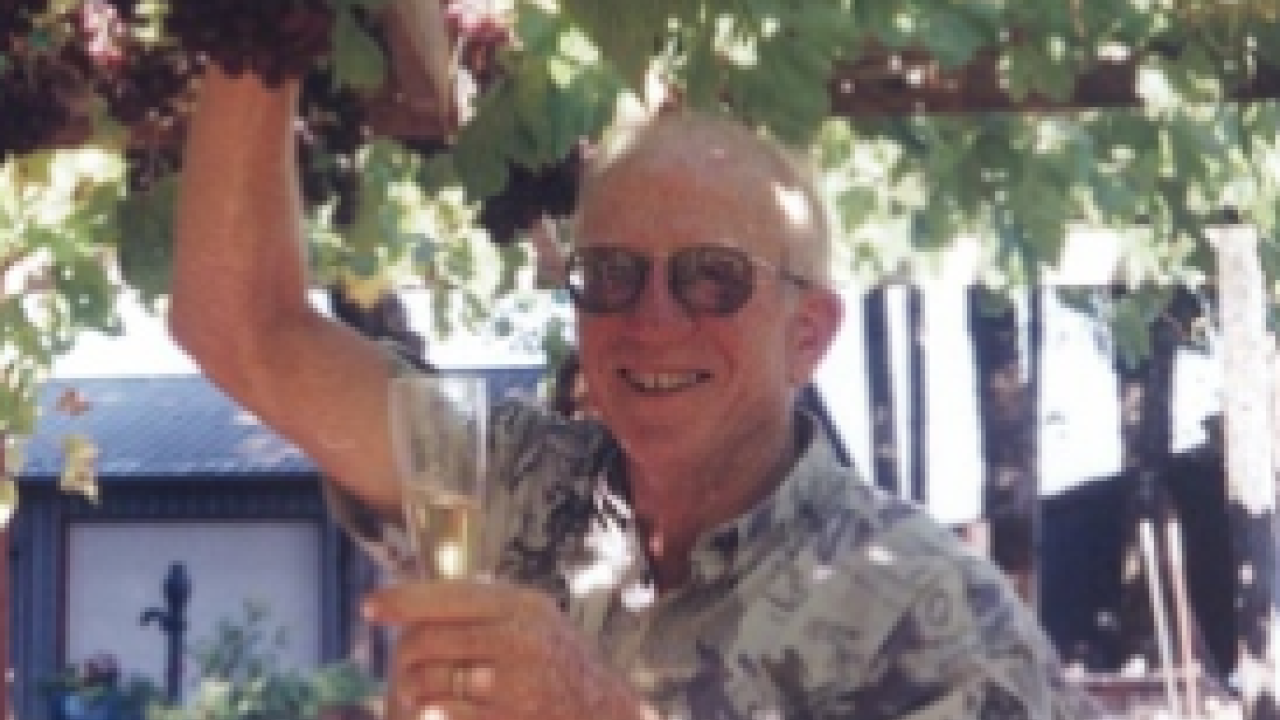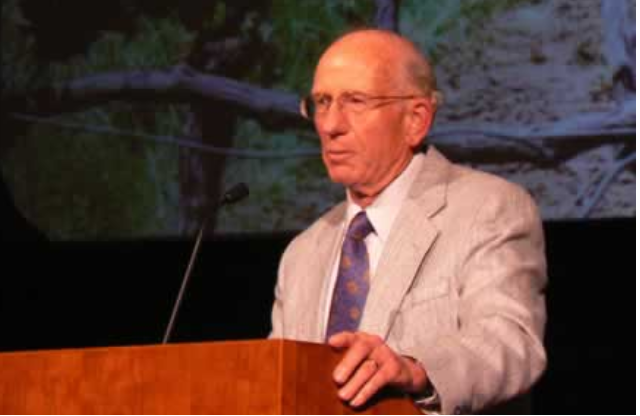
Renowned UC Davis Professor of Viticulture Mark Kliewer Dies at 91
Kliewer trained a generation of viticulturists and winemakers while conducting research which provided the foundation for modern vineyard management practices.
W. Mark Kliewer, renowned Professor of Viticulture, Emeritus, in the Department of Viticulture and Enology at the University of California, Davis, passed away surrounded by family on May 22, 2025, in Davis, CA. He was 91 years old.
Kliewer was born and raised in Escondido, CA, where he attended local elementary and high schools. He learned the value of hard work at an early age, a lesson he carried throughout his life. He delivered newspapers while attending elementary school and later worked summers and weekends for local citrus and avocado growers. “When members of our laboratory went to the vineyard to work on experiments, Dr. Kliewer insisted on performing the most physically demanding tasks. He led by example with an incredible work ethic – in the laboratory, the classroom, and in the vineyard – he set a very high standard for excellence” said Nick Dokoozlian, Vice President at Gallo, who received his Ph.D. under Kliewer.
Kliewer excelled in science courses in high school, and following graduation enrolled at Cal Poly San Luis Obispo, earning a B.S. in Soil Science with Honors. He went on to earn an M.S. in Agronomy and a Ph.D. in Plant Physiology and Biochemistry, both from Cornell University. Following the completion of his Ph.D., he continued his scientific training as a Post Doctoral Scientist at Oregon State University.
In 1963, Kliewer was hired as an Assistant Professor and Biochemist in the Department of Viticulture and Enology at the University of California, Davis, replacing the legendary Professor of Viticulture and long-time Viticulture and Enology Department Chair, A.J. Winker, upon his retirement. His early research at Davis focused on the characterization of sugars, organic acids, amino acids, and anthocyanins in the fruit of hundreds of wine, table, and raisin grape varieties. This work provided the foundation for Kliewer and others to study the impact of environmental factors such as temperature and light on grape composition and quality. His focus then turned to the physiological regulation of biochemical pathways responsible for the synthesis and degradation of the principal organic acids, amino acids, and color compounds in grape berries. He was among the first to fully characterize the environmental regulation of key biochemical pathways responsible for important grape quality constituents.
Alan Lakso, Professor Emeritus of Horticulture at Cornell University, received his Ph.D. under Kliewer and offered the following remarks, “Mark was a great advisor and had many valuable ideas to suggest to his graduate students while allowing them to pursue experiments independently. The subtlety of his quiet guidance and support was an important part of our training, helping us to gain knowledge and confidence, and to mature. The students trained in his laboratory went on to hold many of the most significant grape and wine academic and industry leadership positions in the world.”
Kliewer is best known by grape and wine producers for his applied research on grapevine canopy management. He was the first to introduce the Vertical Shoot Positioned (or VSP) trellis system in California in the late 1980’s, a trellis system now used extensively in coastal wine growing regions throughout the state. In addition to the wide-scale adoption of VSP and other grapevine trellis and training systems resulting from his research, his work on vine spacing, basal leaf removal, shoot thinning, and crop load management led to the development of management practices that remain in common practice today. Prominent Australian viticulture scientist and global vineyard consultant Richard Smart was a close colleague and research collaborator of Kliewer. He said, “Mark was a deeply respected member of the international grape research community. His seminal work on the impact of canopy microclimate on grape and wine composition was highly regarded and led to the wide-scale adoption of improved trellis/training systems and canopy management practices throughout California and beyond.”

Dr. Mark Kliewer addressing attendees during an international symposium on grapevine canopy management held in his honor in Davis in 2009.
Kliewer was also a dedicated instructor, training a generation of students in grapevine physiology, vineyard development, and vineyard management practices. He taught the core grape production courses at Davis for several decades, including field laboratories where he provided hands-on instruction to students on practices such as vine pruning and training, vineyard establishment, and canopy management. His office door was always open, and he took the time to chat with students to learn about their interests and provide guidance on their career choices. Lasko added, “in addition to the academics, Mark and his wife Helga were gracious and generous hosts, frequently opening their home to students, department members, and international visitors. My wife and I remember discussions over their dinner table and the importance of paying forward such generosity. That had a profound impact on our lives as we enjoyed hosting dinners in our home and getting to know students and visitors from many countries over the years.”
He served as the President of the American Society of Enology and Viticulture in 1982 and in 2003 received the society’s Merit Award, the highest honor given by the society in recognition of extraordinary contributions to the grape and wine industries. During his tenure at UC Davis, Kliewer published 125 peer reviewed research papers, co-authored the seminal viticulture textbook, General Viticulture, and trained and directed the research of 17 Ph.D. recipients and 43 M.S. students. “Dr. Kliewer was extremely humble, but his research was fundamental in advancing the grape and wine industries during a period of rapid growth. His influence is present today in almost every vineyard in the world,” said Dokoozlian.
Following his retirement from UC Davis, Kliewer and his wife Helga established a ten-acre commercial vineyard in the southern Willamette Valley, producing Pinot noir and Pinot gris wine grapes. In addition to working in the vineyard, Mark’s favorite past times included gardening, hiking, traveling to twenty-five countries, tennis, winemaking, and family get-togethers. He and his wife also enjoyed spending time at their cabin in Lake Tahoe.
Kliewer is survived by his wife of 63 years, Helga, his son, Michael, daughter-in-law, Katie, granddaughter, Gillian, and many nephews and nieces.
In lieu of flowers memorial gifts may be made to the American Vineyard Foundation or to a charity of the donor’s choice.
